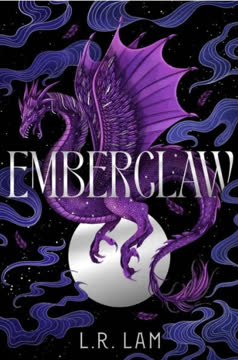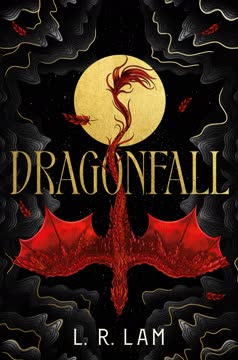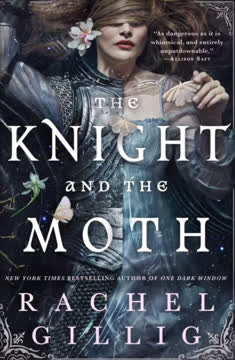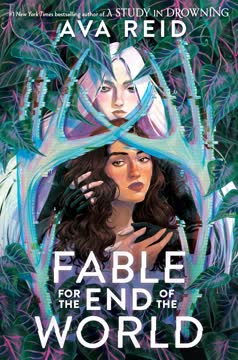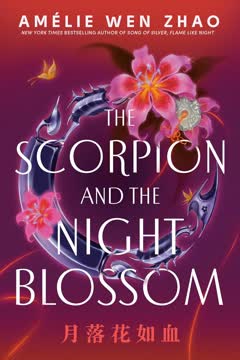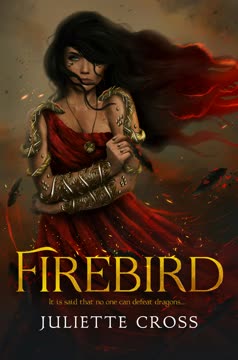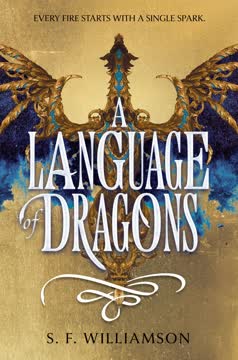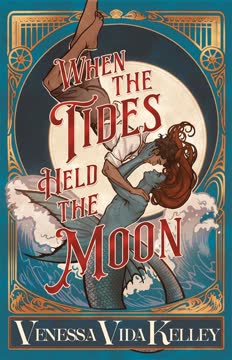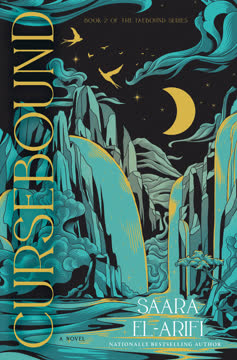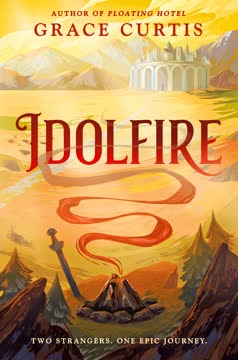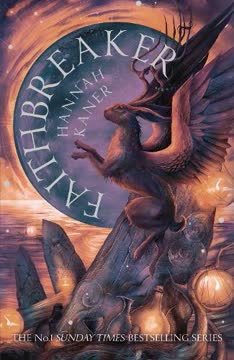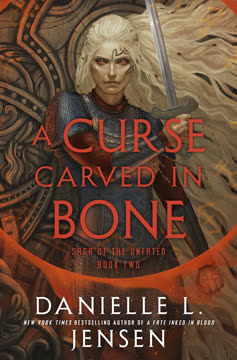Plot Summary
1. Broken Bonds, Silent Streets
Arcady, haunted by dreams of Everen, struggles to begin a new life at the Citadel, hiding their true identity and the trauma of their past. Everen, imprisoned in darkness, mourns the severed bond and the choices that led to their separation. Both are isolated, their worlds upended by betrayal and regret. The city of Vatra is tense, mourning the death of Chancellor Yrsa, while Arcady tries to blend in among privileged students, determined to clear their family's name. The ache of loss and the weight of secrets press on both, setting the stage for a story of longing, guilt, and the desperate hope for redemption.
2. The Dragon's Prison
Trapped beneath Vere Celene, Everen is stripped of his titles and left to rot, his visions of fate clouded by guilt and uncertainty. The Queen's coldness and the dragons' suspicion isolate him further. Cassia, his sister, is torn between loyalty and fear, while the threat of wraiths grows. Everen's only solace is the memory of Arcady and the faint hope that their sacrifice was not in vain. The dragon world is dying, its future uncertain, and Everen's sense of purpose is shattered, leaving him vulnerable to manipulation and despair.
3. Shadows in the Citadel
At the Citadel, Arcady navigates a world of privilege and prejudice, hiding their Struck status and true lineage. Friendships are tentative, and enemies lurk in plain sight. The announcement of the University Trials offers a glimmer of hope—a chance at security and vindication. Yet, blackmail from old allies and the threat of exposure loom. Arcady's determination is tested by the weight of the past and the ever-present risk of discovery, as they struggle to find belonging and purpose in a place built on secrets and lies.
4. The Queen's Last Breath
The death of Chancellor Yrsa sends shockwaves through Loc, destabilizing the balance of power. Magnes, the Head Priest, manipulates events from the shadows, his true nature hidden. In Vere Celene, the Queen's health falters, and Cassia is forced to step into leadership. The dragons are beset by wraith attacks, their numbers dwindling. The sense of impending doom grows, as both worlds teeter on the edge of chaos, and the old order crumbles, making way for new alliances and betrayals.
5. Wraiths in the Veil
Wraiths, monstrous echoes of dragons, slip through the Veil, attacking both humans and dragons. Cassia leads a desperate defense, but the cost is high—lives are lost, and the dragons' strength wanes. Everen's visions reveal the Dreamer, a serpent whose wound threatens both worlds. The prophecy's warning—"You must not wake the Dreamer"—echoes ominously. The Veil's instability is a harbinger of greater disaster, and the interwoven fates of humans and dragons become ever more precarious.
6. Alchemy and Ambition
In the university's alchemy labs, Arcady's curiosity and talent draw the attention of professors and rivals alike. The Elixir of Life, a rumored panacea, becomes a focal point—its creation tied to Arcady's disgraced grandsire and Professor Hayden. Blackmailers seek its secrets, and Arcady is caught between loyalty, ambition, and survival. The metaphor of amalgamation—human and dragon, gold and quicksilver—mirrors Arcady's own fractured identity and the perilous magic that binds the worlds.
7. The Trials Begin
The University Trials test students' mastery of magic, pushing Arcady and their peers to their limits. The first trial is a crucible of self-control, where failure means public humiliation or worse. Arcady's bond with Everen, though muted, gives them an edge, but also risks exposure. Sorin, a priest and secret assassin, becomes Arcady's reluctant ally. The Trials are more than a contest—they are a stage for political machinations, personal vendettas, and the manipulation of fate itself.
8. Secrets and Blackmail
Arcady's past catches up with them as Larkin, Wren, and the Marricks demand the secrets of the Elixir. Sorin's true allegiance is revealed—she is an Eye of Magnes, sent to spy and, if necessary, kill. The web of blackmail, betrayal, and hidden agendas tightens. Arcady must navigate shifting alliances, risking everything to protect their identity and those they care for. The cost of secrets grows, and the line between friend and foe blurs dangerously.
9. The Dreamer's Warning
Everen's dreams and Arcady's childhood visions converge on the image of the dragonstone tree and the wounded serpent. The Dreamer's warning—"You must not wake the Dreamer"—becomes a refrain, as the past's mistakes threaten to repeat. The intertwined magic of human and dragon is both a weapon and a vulnerability. Fate's path is uncertain, and the choices of Arcady and Everen will determine whether the worlds are healed or destroyed.
10. The Second Trial's Price
The second trial, a magical duel, pushes Arcady and Sorin to their limits. Elixir enhances their power but exacts a brutal toll. A student turns Starveling, violence erupts, and the illusion of safety is shattered. Sorin's memories, manipulated by Magnes, begin to unravel. The price of power is revealed—not just in blood, but in the loss of self. The Trials are exposed as a trap, designed to ensnare Arcady and Everen for Magnes's grand design.
11. The Night of Locked Tombs
On the Night of Locked Tombs, Arcady, Everen, and Sorin are drawn to the heart of the Fangs and the dragonstone tree. Magnes, revealed as the ancient dragon Ammil, enacts his plan to heal the Dreamer's wound and seize ultimate power. The truth of Barrow Eremia's role in the Strike is laid bare—he and Ammil's attempt to heal the worlds unleashed catastrophe. The weight of legacy, guilt, and impossible choices presses on Arcady, as the final confrontation looms.
12. The Serpent's Wound
Magnes binds Arcady and Everen, using their bond to channel the tree's magic and heal the Dreamer. The serpent's wound is a festering rot, and the risk of waking it is immense. Sorin, fighting Magnes's control, breaks free and challenges Edin, another of Magnes's Eyes. The battle is both physical and spiritual, as the boundaries between self and other, past and present, blur. The cost of healing may be the loss of everything Arcady and Everen have fought for.
13. The Dragonstone Tree
In the cavern beneath Nalore Monastery, the dragonstone tree is both a source of power and a prison. Arcady and Everen, their souls nearly lost in the storm, must amalgamate—transmute themselves into something more to challenge Magnes. The Dreamer, ancient and vast, offers guidance and a test. The past's mistakes, the pain of legacy, and the hope of redemption converge. The fate of dragons, humans, and the worlds hangs in the balance.
14. The Last Male Dragon
Magnes/Ammil, driven by centuries of loss and rage, seeks to bond with the Dreamer and become a god. His manipulation of prophecy, magic, and memory is revealed as both brilliant and monstrous. The challenge between dragons is invoked, and the final battle is fought not with claws, but with will, love, and sacrifice. The cost of power, the danger of unchecked ambition, and the possibility of change are laid bare in the storm's heart.
15. The Storm Between Worlds
In the eye of the storm, Arcady and Everen's bond becomes the key to healing the serpent and banishing the rot. Their love, trust, and willingness to sacrifice for each other allow them to do what no dragon or human ever has. The Dreamer, satisfied, returns to slumber. Ammil is defeated, the wraiths are banished, and the worlds are saved—but not without loss. The boundaries between worlds, selves, and destinies are forever changed.
16. The Challenge of Fate
The dragons, battered but alive, return to the human world as Vere Celene reemerges. Cassia becomes Queen, and the future of dragons and humans is uncertain but hopeful. Arcady lays their old name to rest, choosing a new path. Sorin, freed from Magnes's control, seeks peace and purpose. The cost of victory is reckoned, and the survivors must decide what kind of world they will build from the ashes of the old.
17. The Coming Dawn
As dawn breaks, the Veil shimmers and Vere Celene returns. The world is forever changed—dragons and humans must learn to coexist, and the wounds of the past must be healed anew. Arcady and Everen, united in love and purpose, choose to step into the light, determined to shape a future where both kinds can thrive. The story ends with hope, uncertainty, and the promise of new stories yet to be written.
18. Reunion and Reckoning
In the aftermath, Arcady and Everen find peace in each other and in the choices they have made. The cost of healing is high, but the possibility of renewal is real. The Dreamer sleeps, the dragonstone tree endures, and the scales are balanced—for now. The survivors reckon with their pasts, honor their dead, and look to the future with open eyes and hearts. The story closes with the Archivist's promise: the tale is not over, and the balance between hope and despair, love and loss, will always be at the heart of the world.
Characters
Arcady Dalca / Arcady Eremia
Arcady is a thief, a Struck survivor, and the grandchild of the infamous Plaguebringer, Barrow Eremia. Driven by guilt, anger, and a fierce need to clear their family's name, Arcady is both cunning and vulnerable. Their relationship with Everen is fraught with mistrust, longing, and the pain of betrayal, but ultimately becomes a source of strength and transformation. Arcady's journey is one of self-acceptance—learning to lay down the burdens of legacy, embrace their own power, and choose love and hope over fear and isolation. Their psychological arc is a struggle between self-loathing and the courage to claim a future, not just for themselves, but for both humans and dragons.
Everen Emberclaw
Everen, the last male dragon, is raised as a savior and weapon, but is cast out and stripped of his name after defying prophecy. His bond with Arcady is both a curse and a lifeline, forcing him to confront the limits of destiny and the cost of love. Everen's psychological journey is from arrogance and certainty to humility, doubt, and ultimately, self-forgiveness. His struggle with the expectations of his kind, the trauma of imprisonment, and the temptation of power mirrors the larger conflict between worlds. Through Arcady, Everen learns to choose his own path, embracing vulnerability and the possibility of peace.
Sorin
Sorin is a priest of the Order of the Dragons, trained as an assassin and manipulated by Magnes through mind magic and addiction to Elixir. Her loyalty is fractured, torn between duty, faith, and the desire for autonomy. Sorin's arc is one of awakening—breaking free from Magnes's control, confronting the violence she has committed, and choosing to help Arcady and Everen at great personal risk. Her relationship with Arcady evolves from suspicion to reluctant partnership to genuine respect. Sorin's struggle is deeply psychological: the battle to reclaim her mind, her agency, and her right to a future of her own choosing.
Magnes / Ammil
Magnes, the Head Priest, is revealed as Ammil, the previous last male dragon, who has lived for centuries among humans, orchestrating events to suit his vision. His psychological profile is complex: driven by loss, rage, and a desperate need for control, he is both brilliant and monstrous. Magnes's manipulation of prophecy, memory, and magic is rooted in trauma and the fear of irrelevance. His downfall is his inability to trust, love, or relinquish power. He is a cautionary figure—a warning of what happens when ambition and pain are left unchecked.
Cassia Emberclaw
Cassia, Everen's sister, is thrust into leadership as the Queen's health fails. She is torn between loyalty to her family, the expectations of her kind, and the hope for a better future. Cassia's arc is one of growth—learning to lead with compassion, to trust in the possibility of peace, and to carry the weight of survival. Her relationship with Everen is fraught but loving, and her decisions shape the fate of the dragons.
Professor Hayden
Professor Hayden is a master alchemist, former assistant to Barrow Eremia, and unwilling collaborator with Magnes. Their role is pivotal in the creation of Elixir and the legacy of the Strike. Hayden's psychological struggle is with guilt, complicity, and the hope for redemption. Their relationship with Arcady is marked by mutual suspicion, regret, and the possibility of healing old wounds.
Larkin Nash
Larkin is the leader of the Marricks, driven by a desire to help the Struck but willing to use any means necessary. Her relationship with Arcady is complex—part mentor, part adversary, part family. Larkin's arc is one of pragmatism, betrayal, and the limits of loyalty. She embodies the moral ambiguity of survival in a world built on secrets and power.
Kelwyn
Kelwyn is Arcady's oldest friend and confidant, providing shelter, support, and tough love. His relationship with Arcady is tested by secrets and betrayal, but ultimately grounded in care and forgiveness. Kelwyn represents the possibility of home, belonging, and the pain of loss.
Barrow Eremia
Barrow, Arcady's grandsire, is both a victim and perpetrator of the world's greatest catastrophe. His ambition to heal the worlds leads to disaster, and his legacy haunts Arcady and the world. Barrow's psychological arc is one of guilt, sacrifice, and the hope that his mistakes can be redeemed by those who come after.
The Dreamer
The Dreamer is the ancient, wounded serpent whose slumber and pain shape the fate of both worlds. It is both a symbol and a force—representing the dangers of unchecked ambition, the need for balance, and the possibility of healing. The Dreamer's presence is a constant reminder that the past cannot be changed, but the future is always in flux.
Plot Devices
Dual Narrative and Interwoven Fates
Emberclaw employs a dual narrative structure, alternating between Arcady and Everen's perspectives, with Sorin and Magnes as crucial secondary voices. This structure allows for deep psychological exploration, contrasting human and dragon experiences, and highlighting the ways trauma, love, and ambition shape both. The interwoven fates of the main characters are mirrored in the recurring motifs of amalgamation, alchemy, and the dragonstone tree. The use of dreams, visions, and prophecies as both foreshadowing and plot propulsion blurs the line between past, present, and future, creating a sense of inevitability and tension. The Trials serve as both literal and metaphorical tests, exposing character flaws, strengths, and the manipulations of unseen forces. The ultimate plot device is the bond—between human and dragon, past and present, self and other—which becomes both the source of conflict and the means of salvation.
Analysis
Emberclaw is a masterful exploration of trauma, legacy, and the possibility of redemption in a world riven by prejudice, ambition, and the scars of history. At its heart, the novel interrogates the cost of power—personal, political, and magical—and the ways in which love, trust, and vulnerability can both wound and heal. The dual narrative structure allows for a nuanced examination of identity, as Arcady and Everen grapple with the burdens of expectation, guilt, and the longing for belonging. The recurring motif of amalgamation—whether in alchemy, magic, or relationships—serves as a metaphor for the necessity of balance, compromise, and transformation. The Dreamer, as both a literal and symbolic force, embodies the dangers of unchecked ambition and the need to reckon with the past in order to build a better future. The novel's resolution, in which love and trust become the key to healing the world, is both hard-won and deeply moving. Emberclaw ultimately argues that while fate and history may shape us, it is our choices—especially the choice to love, forgive, and hope—that define who we become. In a modern context, the book resonates as a meditation on the cycles of violence and healing, the importance of confronting systemic injustice, and the enduring power of connection across difference.
Last updated:
Review Summary
Emberclaw received mostly positive reviews, with readers praising its world-building, character development, and satisfying conclusion to the Dragon Scales duology. Many found it an improvement over the first book, particularly enjoying the magical university setting and trials. The romance between Arcady and Everen was well-received, as was Sorin's character arc. Some criticism focused on pacing issues and a rushed ending. Overall, readers appreciated the unique take on dragons, queer representation, and the emotional depth of the story.
Dragon Scales Series
Similar Books
Download PDF
Download EPUB
.epub digital book format is ideal for reading ebooks on phones, tablets, and e-readers.
